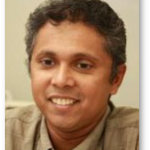After one hundred days of continuous strike action during which FUTA was able to generate a tremendous public debate on education, the FUTA Executive Committee having met 11th October, 2012, decided to suspend its strike action as of 12th October, 2012 taking into consideration views expressed by a majority of sister unions.
The government’s response to the 100 day FUTA trade union action has been in the form of a cabinet note, letter issued by the Secretary to the Treasury and a joint statement regarding the agreements reached by the two parties. While noting the proposed policy initiatives suggested by the government in response to the demands made by FUTA, it is our view that these do not completely address the very serious and critical issues raised by FUTA during its trade union action.
The FUTA is especially disappointed that the government has failed to make a specific commitment with regard to the 6% of GDP for education campaign. After three months of continuous trade union action, during which FUTA was able to mobilize tremendous support for increasing allocation for education from among members of the public, trade unions, civil society organizations and political parties, the government’s response is limited to what has been stated in the Note to Cabinet presented by Ministers Basil Rajapakseand S.B. Dissanayake on 12th September 2012. While FUTA notes that the government has accepted in principle to allocate more funding for education in line with international benchmarks in the cabinet note, it is disappointing that the government has failed to specify a road map as to how it plans to increase allocations for education.
While several initiatives have been suggested with regard to respecting university autonomy and academic freedom, whether these suggestions will translate into specific initiatives and bring about a change of attitude among those who have been responsible for the erosion of university autonomy and academic freedom remains to be seen. FUTA, while welcoming these initiatives, will be closely monitoring how meaningfully they develop in the future.
Further, the government’s response to our demand in regard to the salaries of academics made in order to address the issue of recruiting and retaining qualified staff is currently only in the form of an assurance and is devoid of any specifics or modalities. By letter dated 9th October, 2012, the Secretary to the Treasury has undertaken to address the demand, in consultation with FUTA, within the next five years starting with the 2013 budget.
It appears that the government is unwilling at this juncture to provide specific solutions to the issues we raised, through our arduous campaign of hundred days. In view of that reality, continuing with the trade union action was thought futile by a majority of our sister unions, especially given the immense hardship caused to students. However, the membership remains defiant in its commitment to achieving its demands in the long term.
We will continue to monitor whether the government follows up on the assurances that have been made and we retain the right to take appropriate trade union action if these assurances are not fulfilled. With regard to the 6% of GDP for Education campaign, the FUTA intends to continue its campaign collaboratively with other like-minded unions and civil society organizations, mindful that the campaign is no longer a mere FUTA campaign but a national campaign which we will continue to lead.
FUTA takes enormous pride in that it was able to sustain the trade union action for so long despite severe hardship faced by its membership through our unwavering commitment to a higher cause. We are equally proud that that we were able to build such a broad platform in support of our campaign. We stand tall as we were able as a trade union, to go beyond narrow professional interests and campaign on issues of social importance. The experiences of the last 100 days have served as a tremendous factor in reawakening the academic community to be mindful of its social responsibilities. This reawakening will serve us well in the months ahead of us as we continue to struggle for our demands.
We would like to take this opportunity to thank all those who supported our campaign in various ways. We express our appreciation for the role of the all religious dignitaries in attempting to mediatebetween FUTA and the government, especially when discussions had come to a halt. Our gratitude is also due to all the retired academics, including former Vice-Chancellors who supported our cause and expressed public support for our campaigns as well as the solidarity shown by academics around the world. We are especially thankful to our fellow trade unions, other civil society organisations and conscientious public representatives who joined our campaign with conviction and determination. To all the media organisations and media personnel who covered our campaigns, and who provided us the space to tell our side of the story at a time when our access to the media was severely constrained too we express our appreciation. To our students, who stood by us and supported us at such tremendous cost, we can only say that this fight was for you and for future students. You continue to inspire us to remain in this profession. We remember with sadness and deep respect the two students who lost their lives while participating in a protest campaign.
We may have ended our strike, but our campaign to enhance and protect the public funded education system in this country is far from over.
*Dr Nirmal Ranjith Dewasiri, President/FUTA


No comments:
Post a Comment